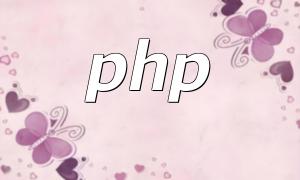When developing with the Laravel framework, handling arrays is a common task, and during data processing, array deduplication becomes an essential requirement. This article will explain the different methods for array deduplication in Laravel to help developers manage and process data more efficiently.
In many application scenarios, duplicate data can lead to performance degradation and data errors. Therefore, **array deduplication** not only improves data quality but also optimizes database query efficiency. Next, we will introduce several common methods for deduplicating arrays in Laravel.
Laravel provides some built-in methods to handle arrays, but using PHP's `array_unique` function is the most straightforward way. This function easily removes duplicate values from an array.
In this example, `$uniqueFruits` will contain only unique fruit names.
Laravel's collection is a powerful tool for handling arrays. Using collections, you can easily call the `distinct()` method to deduplicate values in an array.
As shown above, `$uniqueCollection` will return a collection without duplicates, which greatly simplifies data processing.
In practical development, array deduplication methods may vary depending on the scenario.
If the array is derived from a database query result set, Laravel's Eloquent ORM allows you to directly use the `distinct()` method within the query, effectively reducing data redundancy.
This allows you to directly retrieve unique user emails, avoiding additional data processing.
In some cases, you might need to deduplicate based on specific conditions. For example, you may need to keep only the most recently registered users among duplicates. In such cases, you can combine grouping and sorting techniques.
This method ensures that only the most recent user information for each email is retained.
In this article, we have discussed several methods for array deduplication in Laravel. Whether using PHP's built-in functions or leveraging the power of Laravel collections, these techniques will improve development efficiency and make data processing more flexible and efficient. By mastering these techniques, developers can easily handle duplicate data in arrays and enhance the overall quality of applications.
We hope this guide on Laravel array deduplication methods has helped you better understand and apply array processing techniques in Laravel.









